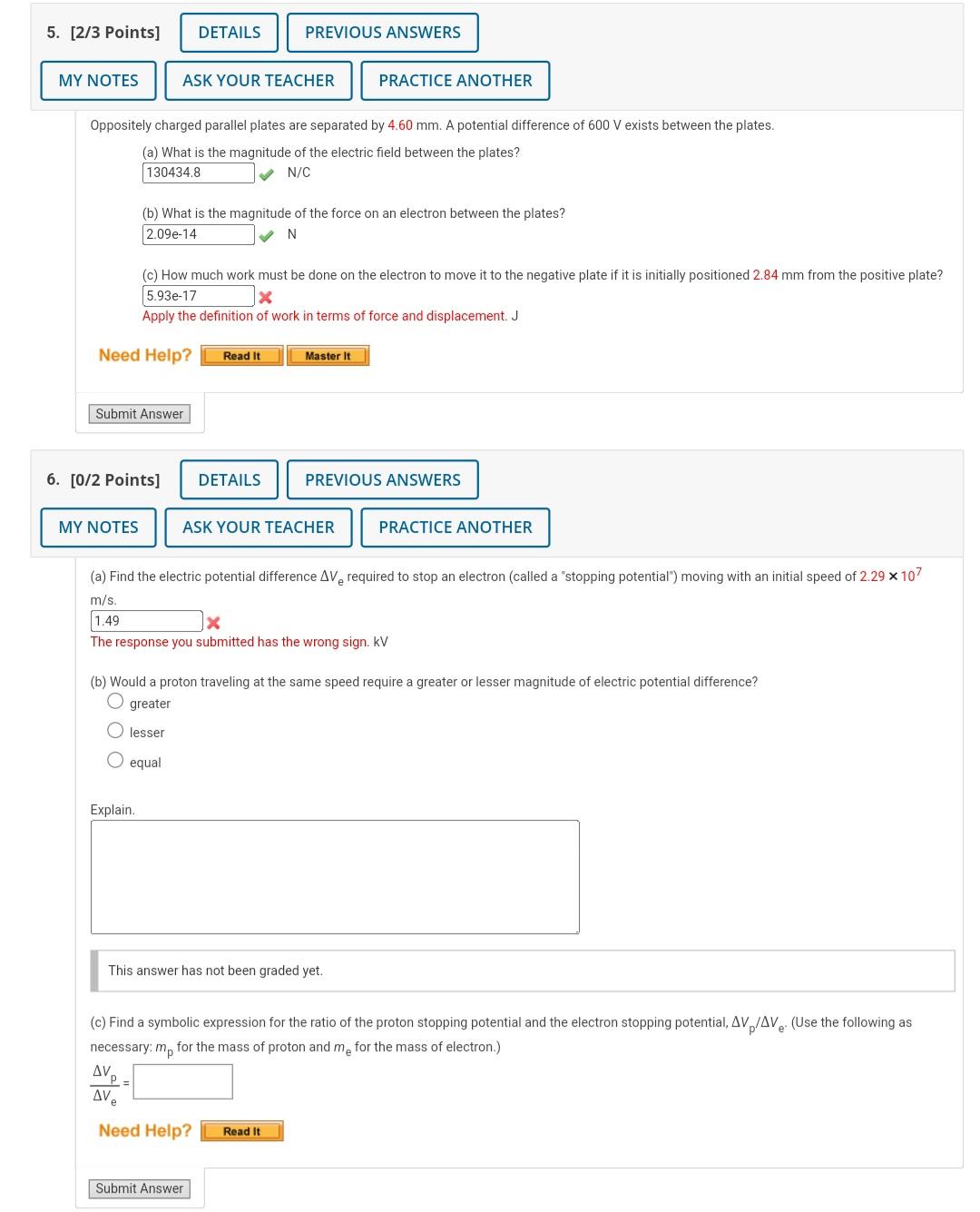Answered step by step
Verified Expert Solution
Question
1 Approved Answer
5. [2/3 Points] DETAILS PREVIOUS ANSWERS MY NOTES ASK YOUR TEACHER PRACTICE ANOTHER Oppositely charged parallel plates are separated by 4.60 mm. A potential

5. [2/3 Points] DETAILS PREVIOUS ANSWERS MY NOTES ASK YOUR TEACHER PRACTICE ANOTHER Oppositely charged parallel plates are separated by 4.60 mm. A potential difference of 600 V exists between the plates. (a) What is the magnitude of the electric field between the plates? 130434.8 N/C (b) What is the magnitude of the force on an electron between the plates? 2.09e-14 N (c) How much work must be done on the electron to move it to the negative plate if it is initially positioned 2.84 mm from the positive plate? 5.93e-17 Apply the definition of work in terms of force and displacement. J. Need Help? Read It Master It Submit Answer PREVIOUS ANSWERS PRACTICE ANOTHER 6. [0/2 Points] DETAILS MY NOTES ASK YOUR TEACHER (a) Find the electric potential difference AV required to stop an electron (called a "stopping potential") moving with an initial speed of 2.29 107 m/s. 1.49 x The response you submitted has the wrong sign. kV (b) Would a proton traveling at the same speed require a greater or lesser magnitude of electric potential difference? greater lesser O equal Explain. This answer has not been graded yet. (c) Find a symbolic expression for the ratio of the proton stopping potential and the electron stopping potential, AV/AV. (Use the following as necessary: mp for the mass of proton and me for the mass of electron.)) AV AV P= e Need Help? Read It Submit Answer
Step by Step Solution
There are 3 Steps involved in it
Step: 1

Get Instant Access to Expert-Tailored Solutions
See step-by-step solutions with expert insights and AI powered tools for academic success
Step: 2

Step: 3

Ace Your Homework with AI
Get the answers you need in no time with our AI-driven, step-by-step assistance
Get Started


